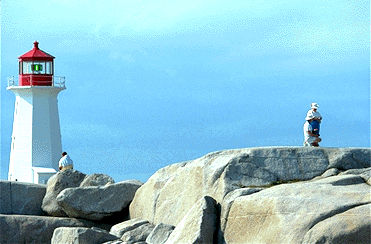Browse "Nova Scotia"
-
Article
Atlantic Provinces
Nova Scotia, Prince Edward Island, New Brunswick and Newfoundland constitute the Atlantic provinces.
"https://development.thecanadianencyclopedia.ca/images/tce_placeholder.jpg?v=e9dca980c9bdb3aa11e832e7ea94f5d9" // resources/views/front/categories/view.blade.php
https://development.thecanadianencyclopedia.ca/images/tce_placeholder.jpg?v=e9dca980c9bdb3aa11e832e7ea94f5d9
-
Collection
Acadian Heritage
This collection explores the rich heritage of the Acadians through articles and exhibits, as well as quizzes on arts and culture, history and politics, historical figures, and places associated with the Acadian people.
"https://d2ttikhf7xbzbs.cloudfront.net/media/media/0988fc77-c4b5-410f-8147-ffcf8bb53fa6.jpg" // resources/views/front/categories/view.blade.php
https://d2ttikhf7xbzbs.cloudfront.net/media/media/0988fc77-c4b5-410f-8147-ffcf8bb53fa6.jpg
-
Article
Intergenerational Trauma and Residential Schools
Historical trauma occurs when trauma caused by historical oppression is passed down through generations. For more than 100 years, the Canadian government supported residential school programs that isolated Indigenous children from their families and communities (see Residential Schools in Canada). Under the guise of educating and preparing Indigenous children for their participation in Canadian society, the federal government and other administrators of the residential school system committed what has since been described as an act of cultural genocide. As generations of students left these institutions, they returned to their home communities without the knowledge, skills or tools to cope in either world. The impacts of their institutionalization in residential school continue to be felt by subsequent generations. This is called intergenerational trauma. This is the full-length entry about Intergenerational Trauma and Residential Schools. For a plain-language summary, please see Intergenerational Trauma and Residential Schools (Plain-Language Summary).
"https://development.thecanadianencyclopedia.ca/images/tce_placeholder.jpg?v=e9dca980c9bdb3aa11e832e7ea94f5d9" // resources/views/front/categories/view.blade.php
https://development.thecanadianencyclopedia.ca/images/tce_placeholder.jpg?v=e9dca980c9bdb3aa11e832e7ea94f5d9
-
Article
Maritime Provinces
The word Maritimes is a regional designation for the Canadian provinces of Prince Edward Island, Nova Scotia and New Brunswick. These provinces constitute a cluster of peninsulas and islands that form the northeastern extension of the Appalachian Highlands and are also significantly affected by the Atlantic Ocean. Together, the Maritime provinces cover 133,850 km2 — or just a little more than 1 per cent of Canada's land surface.
"https://d2ttikhf7xbzbs.cloudfront.net/media/media/276c48ba-ecfb-4c4a-aec6-e7bba279abf9.jpg" // resources/views/front/categories/view.blade.php
https://d2ttikhf7xbzbs.cloudfront.net/media/media/276c48ba-ecfb-4c4a-aec6-e7bba279abf9.jpg
-
Article
Nova Scotia
Nova Scotia is Canada’s second-smallest province (following Prince Edward Island) and is located on the southeastern coast of the country. The province includes Cape Breton, a large island northeast of the mainland. The name Nova Scotia is Latin for “New Scotland,” reflecting the origins of some of the early settlers. Given its proximity to the Atlantic Ocean, Nova Scotia’s economy is largely influenced by the sea, and its harbours have served as military bases during many wars.
"https://d2ttikhf7xbzbs.cloudfront.net/media/media/4b77ac3b-257b-4395-b19a-b5d9fa7d020c.jpg" // resources/views/front/categories/view.blade.php
https://d2ttikhf7xbzbs.cloudfront.net/media/media/4b77ac3b-257b-4395-b19a-b5d9fa7d020c.jpg
-
Article
Resistance and Residential Schools
Residential schools were government-sponsored religious schools that many Indigenous children were forced to attend. They were established to assimilate Indigenous children into Euro-Canadian culture. Indigenous parents and children did not simply accept the residential-school system. Indigenous peoples fought against – and engaged with – the state, schools and other key players in the system. For the duration of the residential-school era, parents acted in the best interests of their children and communities. The children responded in ways that would allow them to survive.
"https://d2ttikhf7xbzbs.cloudfront.net/ResistanceandResidentialSchools/a101771-v8.jpg" // resources/views/front/categories/view.blade.php
https://d2ttikhf7xbzbs.cloudfront.net/ResistanceandResidentialSchools/a101771-v8.jpg
